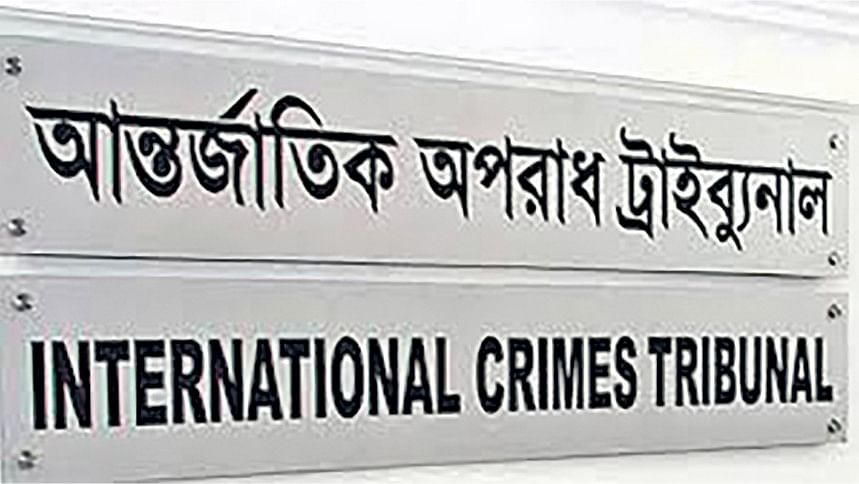Reforming the International Crimes (Tribunals) Act 1973

Since the July revolution, there has been a strong push for reforms across the country. As expected, the clamours for reforms have not left the International Crimes (Tribunals) Act 1973 (ICT Act) untouched. As the government prepares to prosecute high-ranking members of the former government, it is crucial to implement extensive reforms to the Act to ensure the proceedings are beyond reproach.
Firstly, the lack of a clear definition for 'crimes against humanity' has raised significant concerns. In a report released on 29 December 2009, the War Crimes Committee of the International Bar Association (IBA) highlighted that the 1973 Act's definition clause was missing a crucial element: the 'widespread or systematic' nature of the attacks. In 2011, both Amnesty International and Human Rights Watch issued statements noting that the definition did not meet international standards. To address this, the Law Ministry has proposed amendments to section 3(2)(a) of the Act to align it with the Rome Statute.
The IBA Report also highlights that the offending acts must be committed 'with knowledge' of their widespread or systematic nature. The current definition does not include this knowledge requirement. However, the proposed insertion of section 3(3) of the Act addresses this by requiring the Tribunal to consider the ICC Elements of Crime. Adopting these internationally accepted Elements of Crimes will significantly improve the Act's definition clause.
Amending the ICT Act is not just a legal necessity but a moral imperative. Ensuring that the trials are fair, transparent, and beyond criticism will not only honour the memory of the victims of the July massacre but uphold the principles of justice.
Secondly, section 6(8) of the Act has been widely criticised for preventing challenges to the constitution of the Tribunal. Ideally, this provision should be repealed as it is potentially prejudicial to fair trial. The right to a fair trial presupposes that either party will be at liberty to challenge the appointment of Tribunal member.
Thirdly, in the absence of any concrete rules of evidence applicable to the ICT trials, miscarriage of justice becomes inevitable. Section 19(1) of the Act provides that the Tribunal 'shall not be bound by technical rules of evidence' and that it may admit any evidence 'which it deems to have probative value'. The IBA Report had noted that the use of the word 'technical' is potentially prejudicial and that the 'probative value test' appears to override the standard hearsay rule. Indeed, section 19(1) of the Act, as it exists, grants the Tribunal a carte blanche in admitting evidence as it deems fit. This is seriously prejudicial to a fair trial as the evidence that may be produced before the Tribunal essentially depends on the whims of the judges.
This may be remedied by adopting the ICC Rules of Procedure and Evidence which would ensure that the ICT procedural rules are at par with internationally recognised procedural safeguards. Alternatively, section 23 of the Act may be amended to make the Evidence Act 1872 applicable to the ICT proceedings.
And lastly, the proposed section 20A of the Act seeks to ban a political party that has been found guilty of crimes against humanity. If at all a political party has to be banned, such initiative should be undertaken politically. The judiciary should not be called upon to enter the murky waters of Bangladesh politics to ban a political party. This would raise concerns as to the impartiality of the Tribunal. More importantly, it would cast a shadow on judgments that may be passed against perpetrators of some of the worst crimes committed in the history of independent Bangladesh.
Moreover, the interim government should bear in mind that in the past, attempts were made to amend the ICT Act to ban political parties. However, such initiatives never saw the light of the day because of criticisms from the international community. The same is likely to happen here. If the Act is amended to empower the Tribunal to prosecute and punish a political party, it is likely to raise a hue and cry in the international community. Amending the ICT Act is not just a legal necessity but a moral imperative. Ensuring that the trials are fair, transparent, and beyond criticism will not only honour the memory of the victims of the July massacre but uphold the principles of justice. The time for reform is now, and it is crucial that we seize this opportunity to create a more just and equitable legal framework.
The writer is a Barrister and a practising Advocate of the Supreme Court of Bangladesh.

 For all latest news, follow The Daily Star's Google News channel.
For all latest news, follow The Daily Star's Google News channel. 



Comments